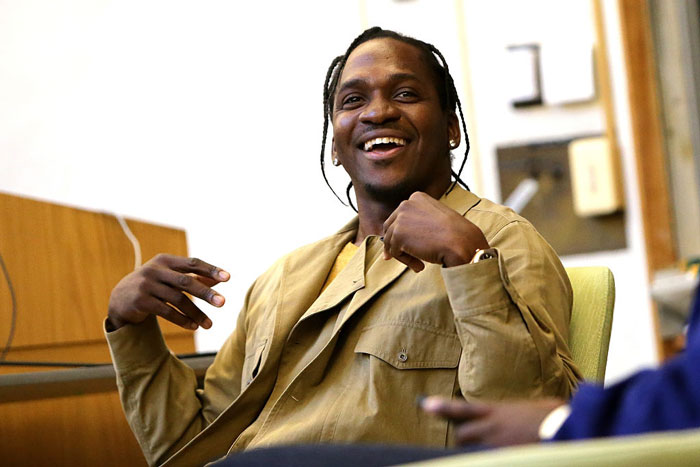Brandy is suing record label Chameleon Entertainment over allegations that the company is holding her to ransom in a bid to force the singer into signing a new deal with Sony’s Epic US.
Brandy Norwood has been working with Chameleon and its founder Breyon Prescott since 2010, and the company released her 2012 album ‘Two Eleven’ via a partnership with Sony’s RCA division.
Then last year Prescott joined Epic as its urban A&R chief, the plan being that Chameleon artists would also work with the Sony label moving forward. But Brandy, who was signed to Epic once before, and things didn’t work out so well there, seems to be resisting that move.
In her lawsuit filed on Tuesday, Norwood alleges that Chameleon, which has the exclusive option on the singer’s next four albums, is refusing to release her next record until she agrees to sign a deal with Epic, which would then put out future LPs alongside Prescott’s own company.
But, say Norwood’s legal reps, the Epic deal is less favourable than her existing arrangement with Chameleon. Plus Prescott pressuring the singer to sign with Sony is basically him ‘double dipping’, they allege, because he’ll earn as owner of Chameleon, and also see bonuses from Epic for securing the new deal.
According to Courthouse News, Norwood’s lawsuit claims that Prescott is basically blackmailing the singer in “a blatantly unlawful attempt to bully Norwood into signing a new recording and distribution agreement containing terms far worse than her current agreement. Defendants have made clear through their actions and words that, unless Norwood capitulates and signs this terrible deal, she will remain ‘trapped’ with a label that won’t let her record or release music”.
The litigation adds that “Prescott owns and operates defendant Chameleon and is employed full time by Epic Records as head of urban A&R. The new recording and distribution deal that he is trying to force Norwood to sign is with Epic, which allows him to ‘double dip’: if Prescott can force Norwood to sign the new deal, he will profit both as an owner of Chameleon and through bonuses and other benefits he will get from Epic”.
This, says the legal filing, is an “outrageous action … based on nothing more than greed”, so much so the court should allow Norwood to terminate her original agreement with Prescott and Chameleon and take her next record elsewhere. The various defendants in the case are yet to respond.





